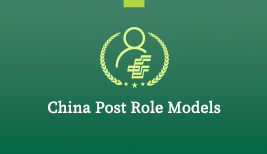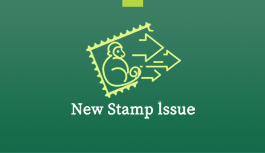Postal Business: 8610 11185
Postal Savings: 8610 95580
Logistics and EMS: 8610 11183
China Post Life: 8610 4008909999
On June 28, the General Administration of Customs (GACC) held an on-site meeting on the supervision reform of inbound and outbound postal items at the Customs of Shenzhen Post Office under Shenzhen Customs District. Li Guo, Vice Minister of GACC, Liu Jun, Deputy Director-General of the State Post Bureau, and Wen Shaoqi, Vice President of China Post Group, attended the meeting.
Participants visited Shenzhen Postal International Parcel Center and listened to the briefings of Shenzhen, Guangzhou, Huangpu and Xiamen Customs Districts and Shenzhen Postal Branch on the supervision reform of inbound and outbound postal items.
Li Guo expressed his appreciation to the State Post Bureau and China Post Group for their long-term support and assistance to the Customs. From the perspectives of national security, public demands and national strategic development, he pointed out the significance of carrying out the supervision reform of inbound and outbound postal items. He also put forward that the postal items supervision hardware facilities should be constantly standardized and improved, and the software should be continuously updated. Meanwhile, the Customs and the Post should collaborate effectively to push ahead with the supervision reform.
Liu Jun introduced the development of China's postal industry, especially the rapid development of cross-border delivery services. He pointed out that, maintaining a sound information-based supervision over inbound and outbound postal items means echoing to General Secretary Xi Jinping's call for cross-border e-commerce to buy globally and sell globally. The security of postal delivery channel is important to national security, and has great influence on the development of postal enterprises. Therefore, postal enterprises should enable Customs declaration to cover all inbound and outbound mail items as soon as possible, and comprehensively optimize the on-site information-based supervision mode.
Wen Shaoqi said that what China Post will do next is take the initiative to adapt to the new situation, and actively cooperate with the Customs to promote the reform of the inbound and outbound postal channels. In this case, China Post will work hard to improve the information level of the international postal services, cooperate with the Customs to push forward the implementation of the information management system of postal articles, and ensure the information quality collected from the inbound mail. Postal enterprises at all levels should rely on information, mechanization and intelligence to boost the capacity building of postal ports. They should also take the opportunity of promoting the informatization and premises optimization of the international mail exchange offices to accelerate the transformation and development of the international postal services.
The Customs and the Post have cooperated very well all the time, and made remarkable achievements in the fields of narcotics control, anti-smuggling, bio-security protection and so on. They have also made achievements in pushing forward the development of new forms and new models of business, strengthening collaboration, exchanging and sharing information, collaborating in training programs as well as establishing linkage mechanism. Shenzhen has a solid foundation and a strong development atmosphere for cross-border e-commerce. Its cross-border e-commerce transaction scale has consistently ranked first in China. In order to improve the efficiency of customs clearance of inbound and outbound postal items, Shenzhen Postal Branch and Shenzhen Customs District jointly explored and established Shenzhen Postal International Parcel Center. Through optimizing the functional areas and constructing intelligent software and hardware systems, the center can carry out both postal and commercial customs clearance simultaneously, realizing the multi-mode supervision of international mail, cross-border e-commerce 9610 and express mail, and enabling the informatization, intelligence, automation and intensification of supervision. Thus it has become a good example for the postal enterprises and Customs nationwide in advancing the supervision reform of inbound and outbound postal items.
Leaders of 13 provincial (municipal) postal branches attended the meeting.






